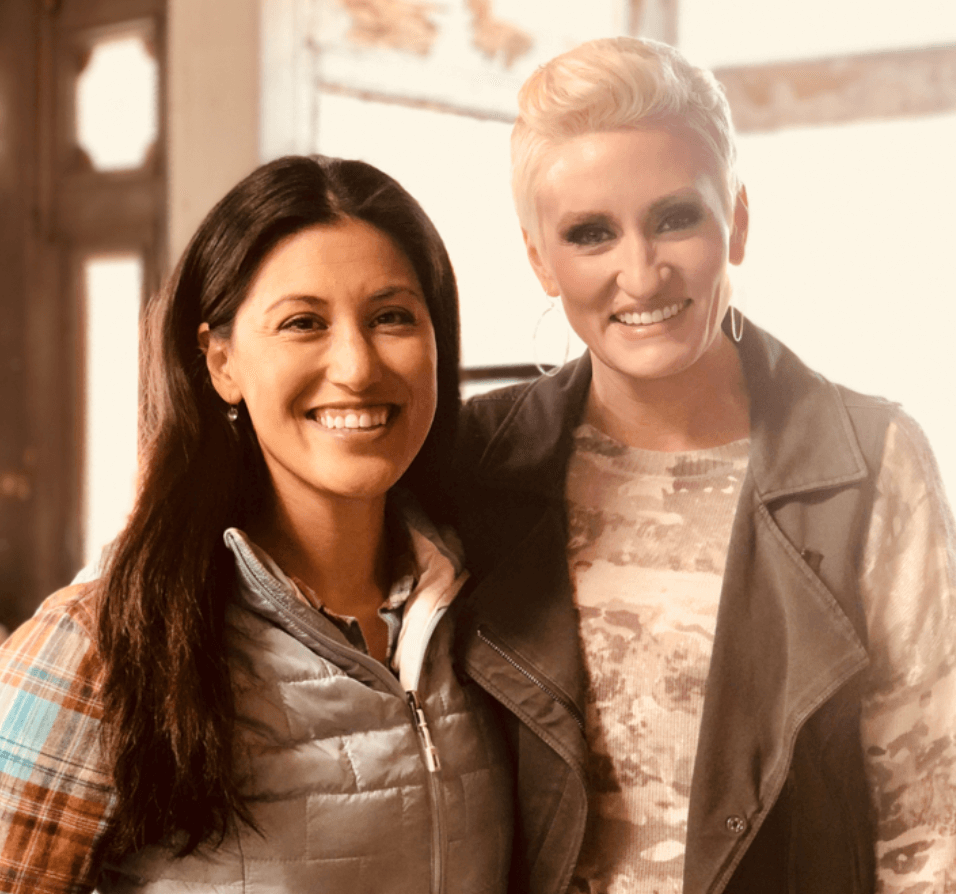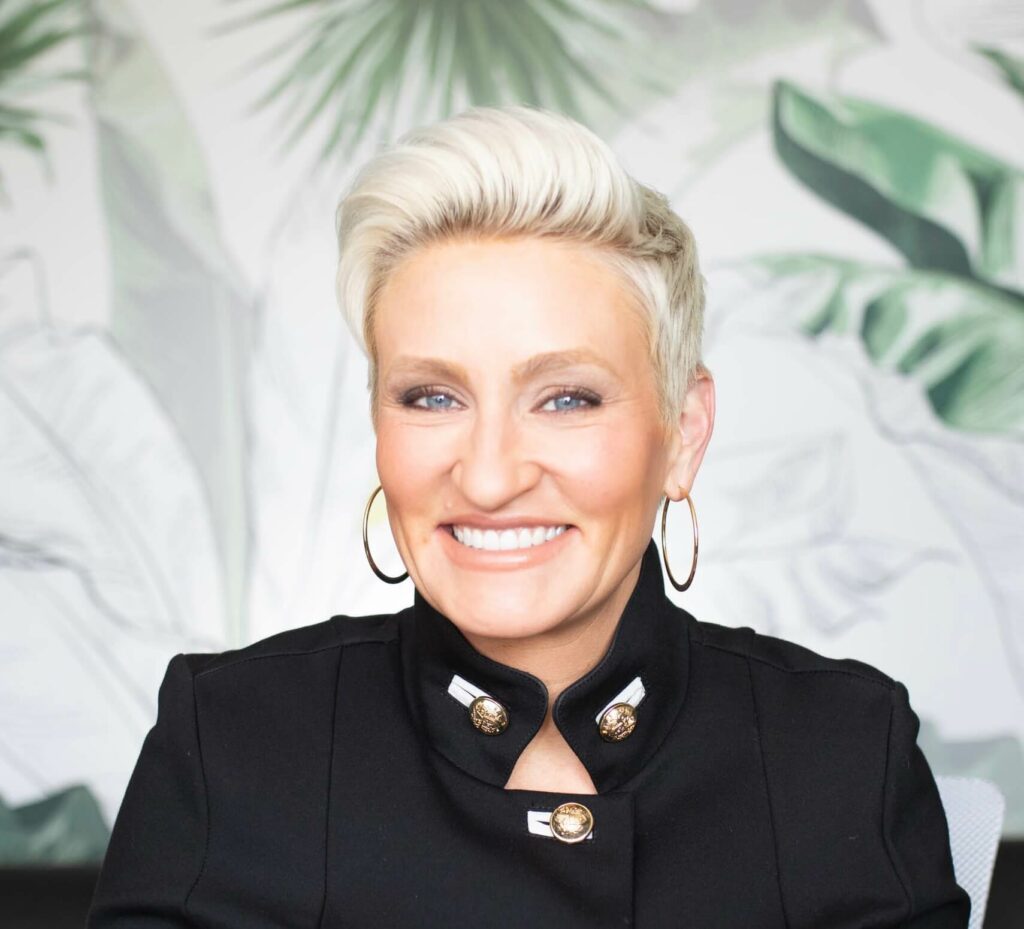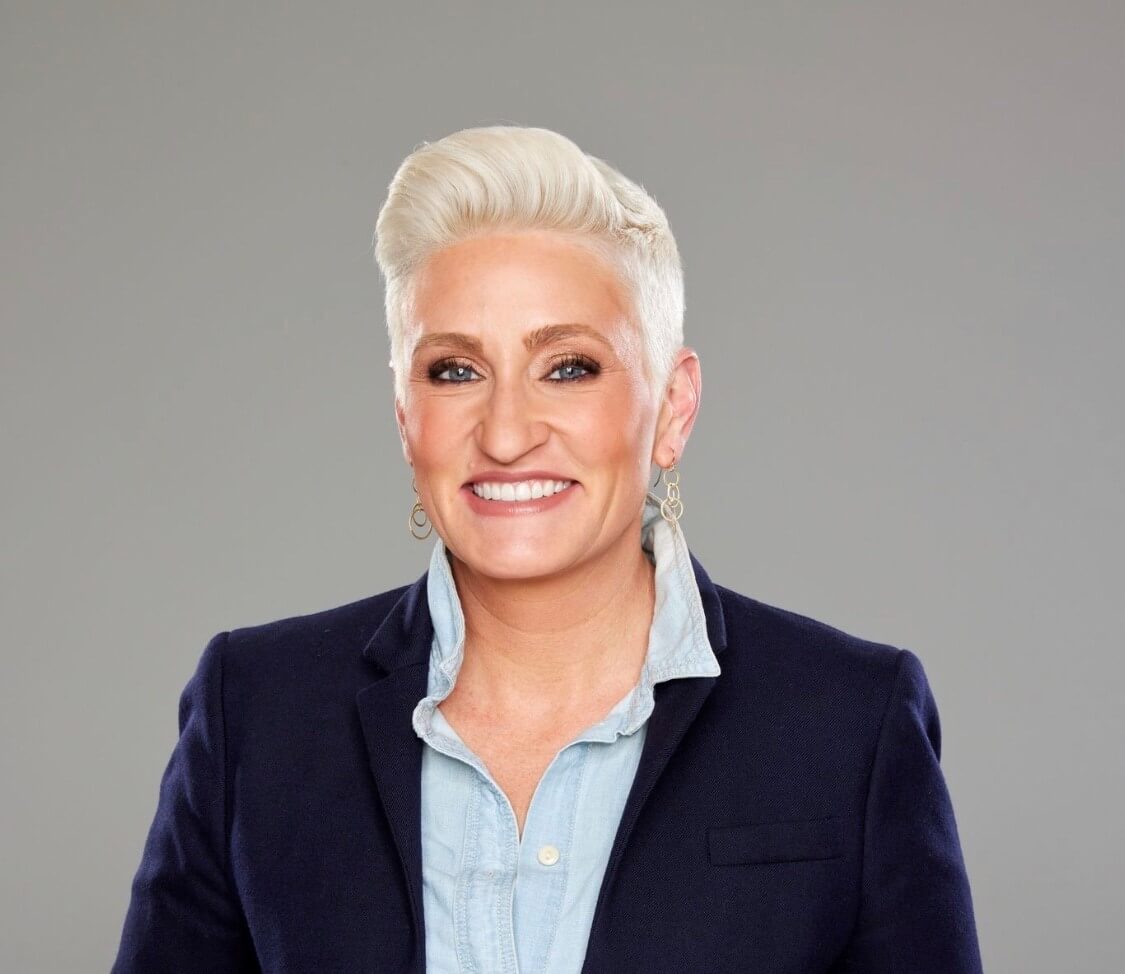If you want to find Hilary Hutcheson, look outside. She’s the owner of Lary’s Fly and Supply in Montana and the host and cofounder of Trout TV. She was never cut out for an office job. Instead, she has invented herself as an outdoors guide and media personality and one of the most inspiring entrepreneurs I’ve ever met. Below, she fills us in on her marketing approach, life philosophy, and quest to prove that you don’t need a beard to have an outdoors career.
Q: I love how you use “Lary” as short for “Hilary.” How did you develop your brand? And how is it reflected in your customer experience?
A: When people come into my fly shop, I want them to feel like they’ve been invited into my tree fort. It’s like a secret clubhouse, but everyone is welcome. I wanted the kind of business that makes visitors feel like locals and inspires locals to connect with visitors. The most obvious way to do that was to get super personal with it. I’ve been in the industry for a long time so I had some confidence in using my name to encourage people that Lary and her buddies can help anyone have a great day out on the water. Using Lary and not Hilary removes any ego in the name of the shop and keeps it light and fun. Lary doesn’t have to be me. It’s whomever might be working in the shop that day. I want customers to feel comfortable, dialed and included. Oh and I dig it when people finally get the joke and say, “Oh… Hi, Lary!”
Q: You have developed a tremendous following on social media for your business. What’s your approach to engaging with consumers?
A: The hefty responsibility of using social media for business is not lost on me. My approach is through honesty. If I’m going to speak through social media, I’m going to speak from the heart, just as I would if I was meeting with consumers in person. Through social media I’m able to explain my belief that protecting the resource comes first. I can help customers find the right people, places and gear to steer them straight. And fly-fishing is such an honest activity anyway. I can’t control the weather, fish behavior, river levels or hatches. So these variables are reflected in online voice. It’s not always sunshine and rainbows. But I do love to post rainbows.
Q: How important is it to you to expand the community of women who are interested in outdoor sports and activities?
A: There’s a heartwarming push industrywide to get more women into fly-fishing. But beyond that I’m dedicated to women’s growth and retention after they’ve become “hooked” on the activity. I feel our overall experience can be improved by having more women in leadership roles in fly-fishing, from guides to product manufacturers to marketers to shop owners.
Q: How do you balance the demands of career and being a mother?
A: I have a lot of support. My daughters have a dedicated father, grandparents nearby, attentive teachers and coaches, and a solid group of friends. Also, I don’t know of any parents who truly have it easy. Parenting is tough, and there’s a lot of joy in the challenge. I appreciate the struggle, and when the girls are at each other’s throats I try to remind myself that I’ll miss it someday. When I get off balance, it’s not because I’m working too hard, it’s because I’ve been playing too hard. That’s when I have to tell myself to stay inside and do laundry, pay bills, clean the house and go grocery shopping. I’m constantly working at it. The girls help me keep balance by reminding me that life isn’t all about the gnarliest fishing adventure. I love watching them play music and sports or hang out in the backyard with friends.
Q: What’s the best piece of advice you ever received from a female mentor?
A: I had a boss once who always said, “solutions, solutions, solutions!” She’d say this when people would complain about a hiccup in a project plan or execution. We are often too eager to point out problems without bringing a possible solution to the table. She taught me that something can always be done. But we won’t know how to fix a problem if we don’t offer up options. We can’t expect someone else to come up with all the ideas to remedy something. But if we bring possible solutions to the table early on, we’ll likely work it out.
Q: How important do you think it is that companies move beyond basic philanthropy and actually get involved in advocating for and making the lives of their customers better?
A: To me, this is similar to the way people say they are dedicated to “conservation.” You’re a conservationist? Well, that’s great. But how, exactly? What does it look like? Rather than generally being in favor of conservation, I think it’s more effective to identify a specific conservation need, and tackle it. Like climate change, habitat restoration or public land access. So, the same is true in business. We can go beyond general philanthropy, and get our hands dirty alongside our customers. If we stand next to them and look at their challenges, we’ll see things like barriers to entry for women in fly-fishing, and we can be more direct in addressing those issues head-on. That’s advocating for their important place in the sport, and improving their overall experience. Their comfort leads to meaningful retention in the industry and a stronger business climate.
Q: I think you are a rock star in the business world. If you were a regular rock star, what would be your stage (or band) name?
A: ROCK BAND NAME: Glacial Silt. HIT SINGLE NAME: Strip Set That Mutha. ALBUM NAME: Mend, Mend, Mend.



